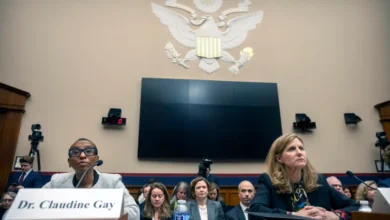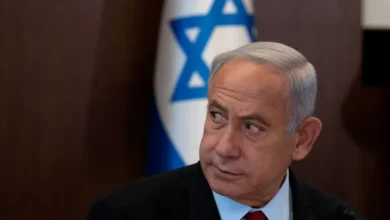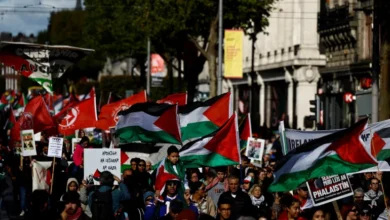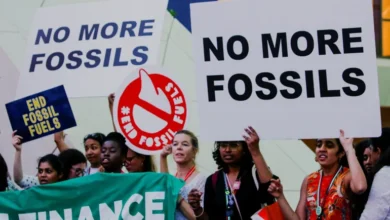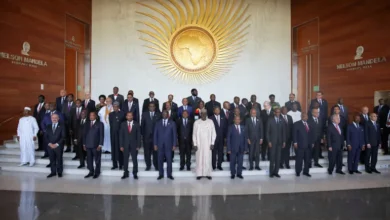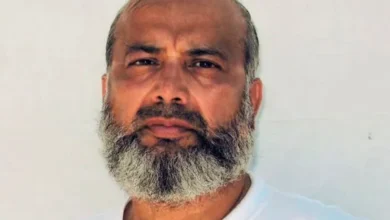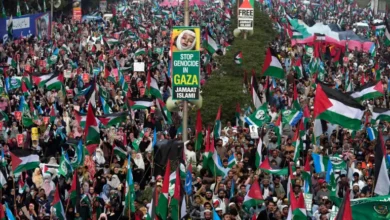‘From the river to the sea’ and the decolonisation of our collective future
Mark LeVine
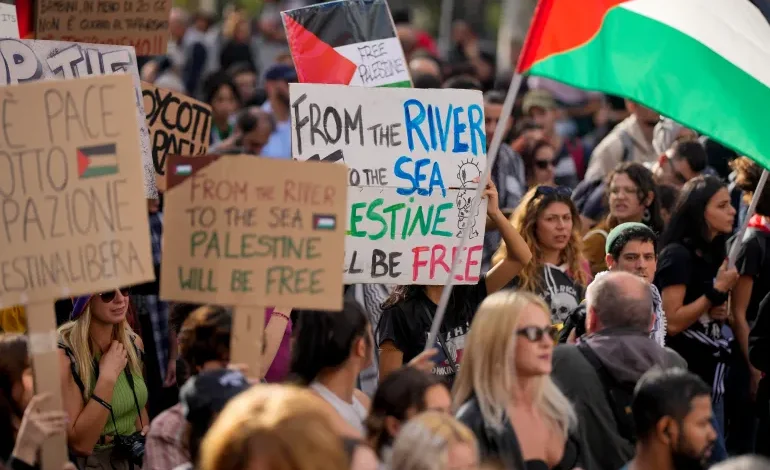
“From the river to the sea, Israel will be free.”
OK, that is not the way it is supposed to go, is it? But at this moment of war and mass death, this proposition is worth reflecting on: Palestine cannot be free without Israel – or at least the Israelis – being free. True freedom between the river and the sea can only be achieved by breaking free from the chains of settler-colonialism but also the narrow bounds of the nation-state.
Before I explain further, let me get into the current debate over the slogan “river to the sea”.
When most Israelis, and no doubt a significant number of Palestinians, hear the phrase “river to the sea,” they imagine it in exclusivist terms. This is not surprising.
The zero-sum understanding of the nation-state – a specific territory under the exclusive control of one national community, has been the determinative communal identity for at least four centuries. Its logic is as simple as it is violent: if this territory belongs to my group, it cannot belong to yours.
Not every country’s identity and politics are based on this logic, but many are. Even countries with a long tradition of intercommunal tolerance can rapidly veer towards chauvinism.
The dynamics are even clearer in settler-colonial societies, where the settler community has to conquer the territory and subdue or expel the Indigenous population in order to build its own society. Genocide is more often than not a core experience of this process.
Israel is, of course, the quintessential settler-colonial society; yet it is also one whose maximalist impulse has yet to be realised. Palestinians have not been reduced to a manageably small minority who can be given formal political rights and then ignored, repressed and extracted without meaningful resistance – as was the fate of Indigenous Americans and Australians.
Given the violence inherent to colonialism, Indigenous resistance has naturally been imagined by settler societies as the mirror image of their eliminationist impulses and policies: We want them gone and will commit whatever violence is necessary to achieve that goal, so they must want and would do the same. Not surprisingly, when resistance does take the form of mass violence, as happened on October 7, that imagination is powerfully reinforced.
In this context, when most Zionist Israelis and Israel supporters hear the phrase “From the river to the sea, Palestine will be free”, they hear “a genocidal call to violence to destroy the state of Israel and its people to replace it with a Palestinian state extending from the Jordan River to the Mediterranean Sea”. The fact that some Palestinians, particularly Hamas, have leaned hard into a violently exclusivist connotation of the phrase only serves to reinforce the idea.

